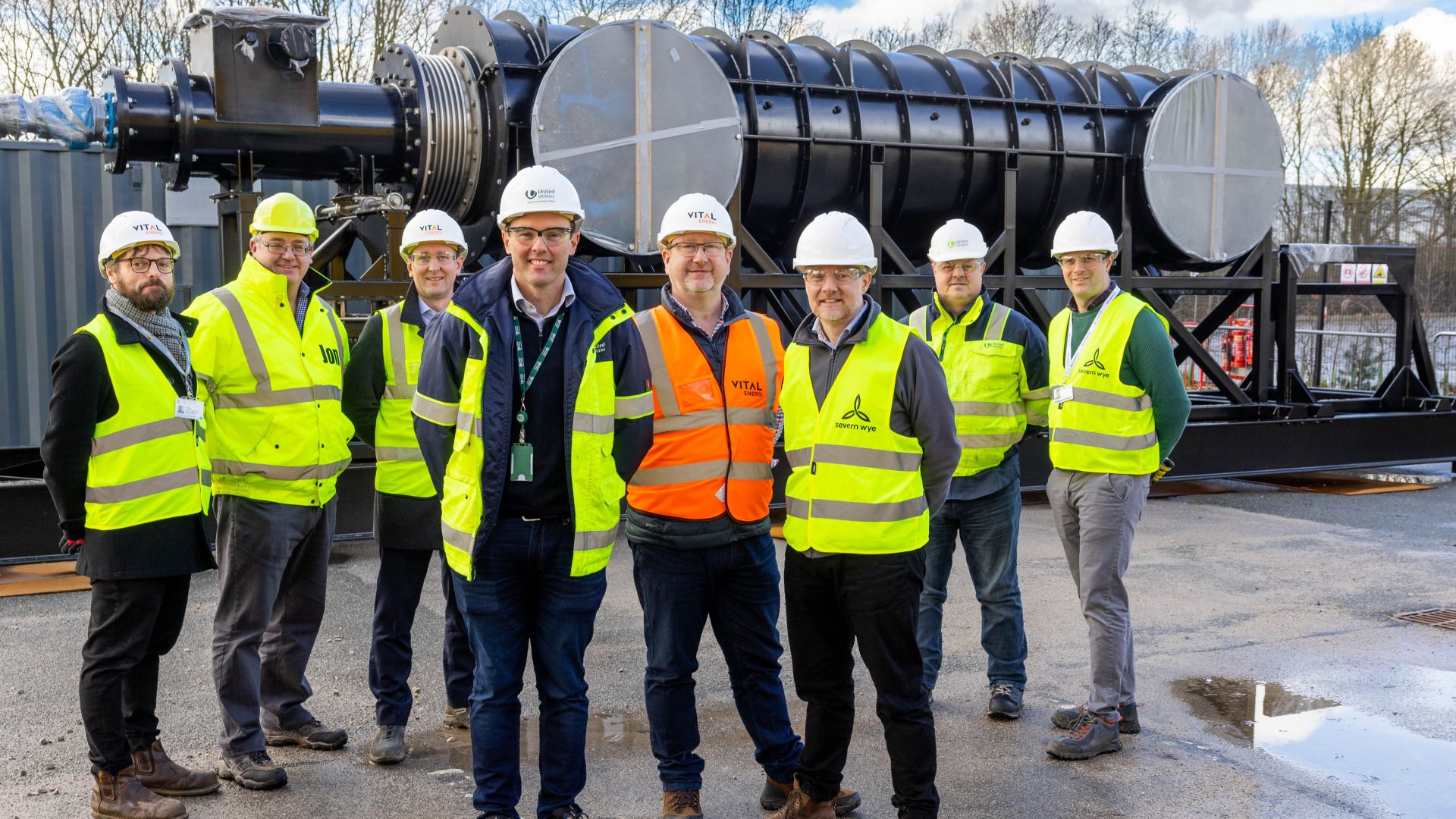Work has begun at a new state-of-the-art carbon-capture plant at Lingley Mere business park which also aims to be the first in the UK to provide low-carbon heating to local buildings.
The project, Mersey Biochar, will lock away over 2,500 tonnes of carbon a year into biochar, a versatile product with a range of uses from improving soil quality to decarbonising the construction industry. Led by climate-action organisations Severn Wye Energy Agency and Pure Leapfrog, a consortium of experts, including Vital Energi and Pyrocore are behind the project, which is hosted by United Utilities.
Capturing carbon and other greenhouse gases will be critical for the UK’s plans to meet net zero by 2050 and the Mersey Biochar pilot will help to strengthen UK expertise in this area.
Severn Wye CEO Sandy Ruthven says:
“We are very excited to see work getting underway at Lingley Mere. To achieve net zero we must find creative ways of heating our homes and businesses. Mersey Biochar will help us prove we can generate energy, capture carbon and create biochar. We’re looking forward to demonstrating that this technology can be rolled out across the country to help tackle climate change.”
Vital Energi’s Head of Pre-Construction Warren Spiers says:
“As a company, we’re excited about the emerging technologies which will help lead the UK to its net zero targets and we’re delighted to see another major milestone happen on this project. This is an important initiative as it takes a tried and tested technology and applies it in a new and innovative way. When operational, it will demonstrate how this process can make a significant contribution to the UK’s net zero economy and give organisations and businesses another attractive option for decarbonising their estate.”
Mersey Biochar will capture carbon from green waste or ‘biomass’, in this case a by-product of local forestry management which would otherwise release its carbon back into the atmosphere as it decays. Carbon is locked in through a process called pyrolysis, which heats the biomass in a virtually oxygen-free environment to produce biochar.
Every tonne of biochar produced can remove up to 3.6 tonnes of CO2 from the atmosphere and store it away for centuries. This facility is expected to produce 700 tonnes of biochar each year which will equate to over 2,500 tonnes of carbon reduction.
Paul Gilligan, CEO of decarbonisation specialist partners Pure Leapfrog, says:
“As we continue along our planned product development pathway, we will see this unit, and more like it in the future, not just to capturing and storing carbon but also delivering clean heat to communities and providing energy services to the electricity grid. This technology has an exciting and valuable future.”
Once the facility’s carbon-capture capabilities are proven, the project also aims to be the first of its kind in the UK to recycle the heat generated from biochar production to heat and power United Utilities’ buildings on the site – part of the company’s long-term sustainability goals.
As United Utilities’ Bioresources and Green Energy Director, Tom Lissett, explains:
“This innovative technology opens up the opportunity to decarbonise our office heating requirements at Lingley Mere using the heat created during the pyrolysis process. It is an important step forward for us in our journey to decarbonising our head office in Warrington.”
Mersey Biochar is funded by the UK’s Department for Energy Security and Net Zero through their Direct Air Capture and Greenhouse Gas Removal innovation programme, established to find new and inventive ways of reducing UK carbon emissions.
Industry experts PyroCore supplied the first elements of the plant in November. The facility is being built by energy specialists Vital Energi and expected to be in operation at the end of the summer.



